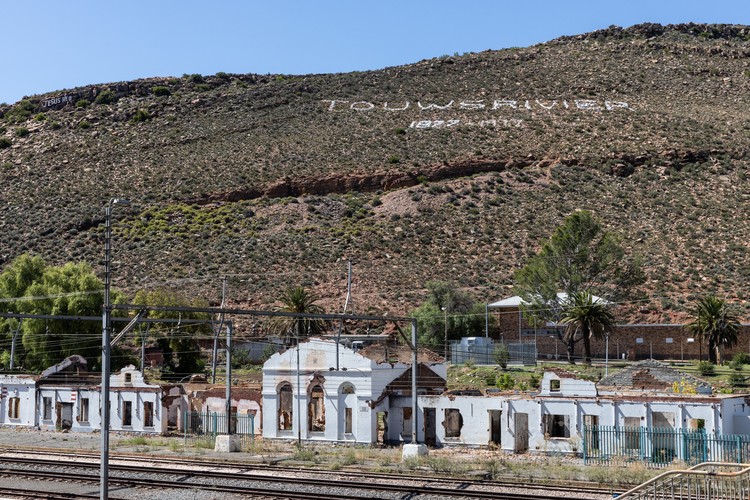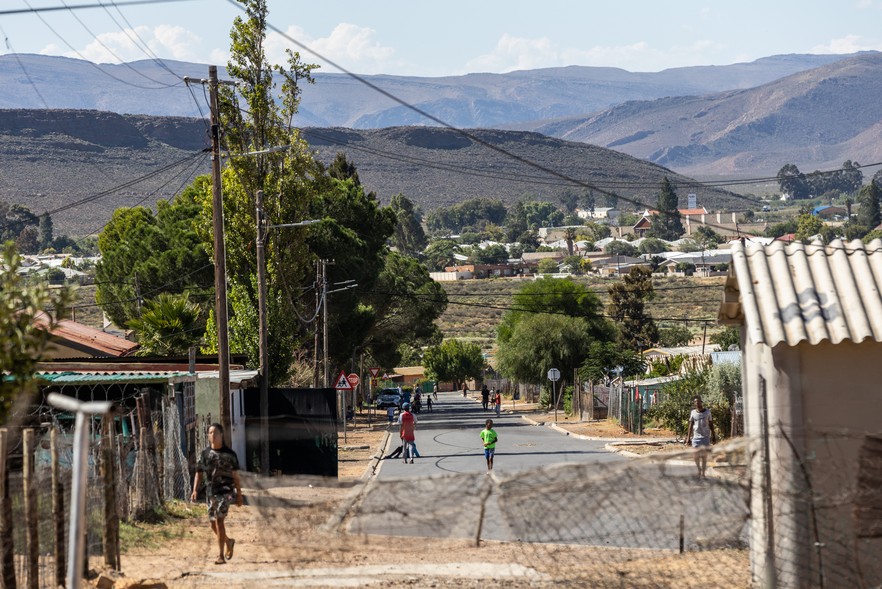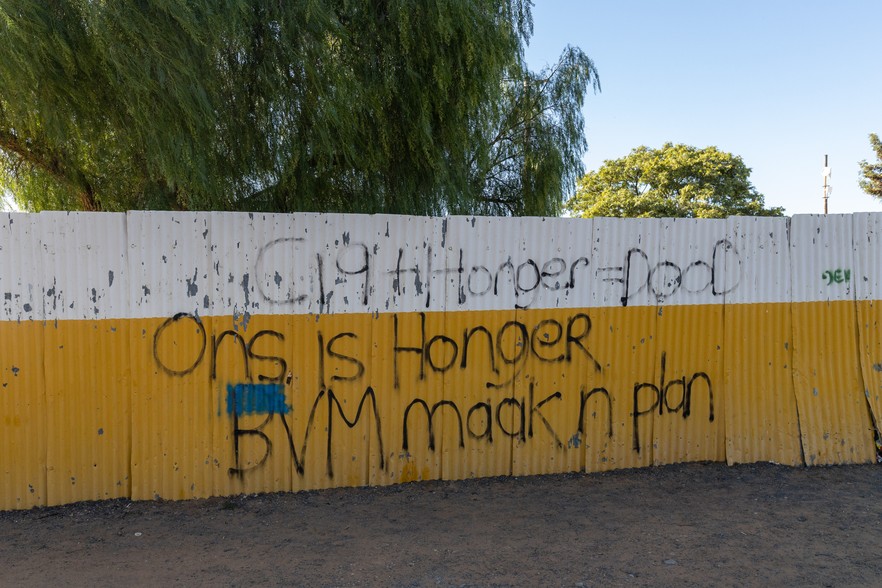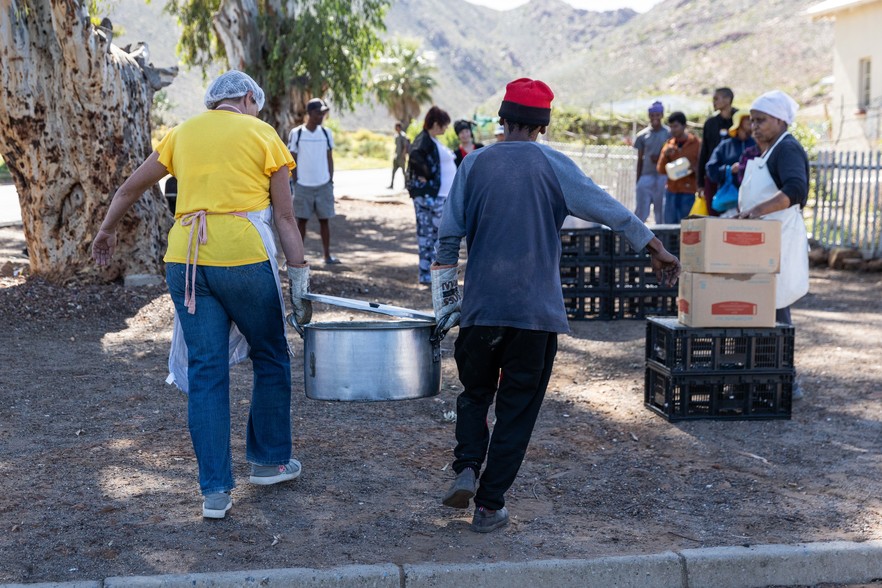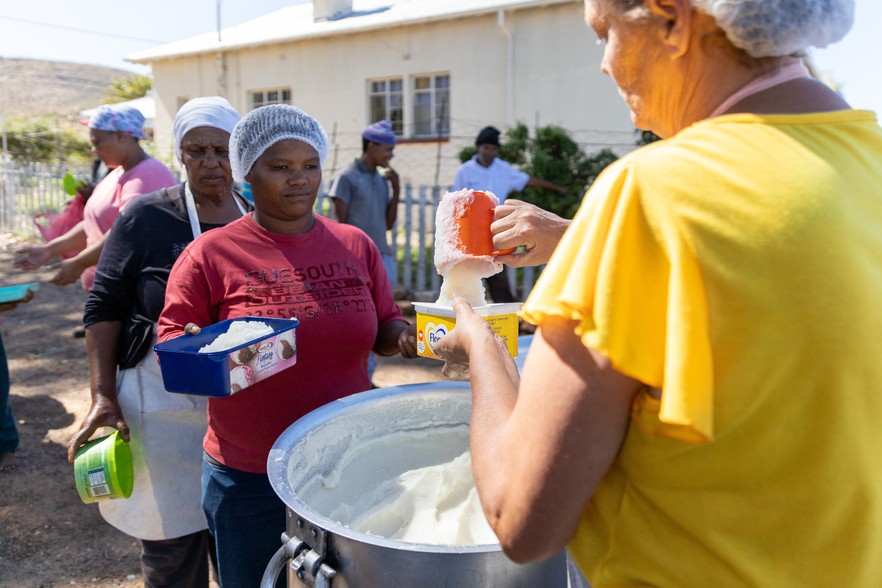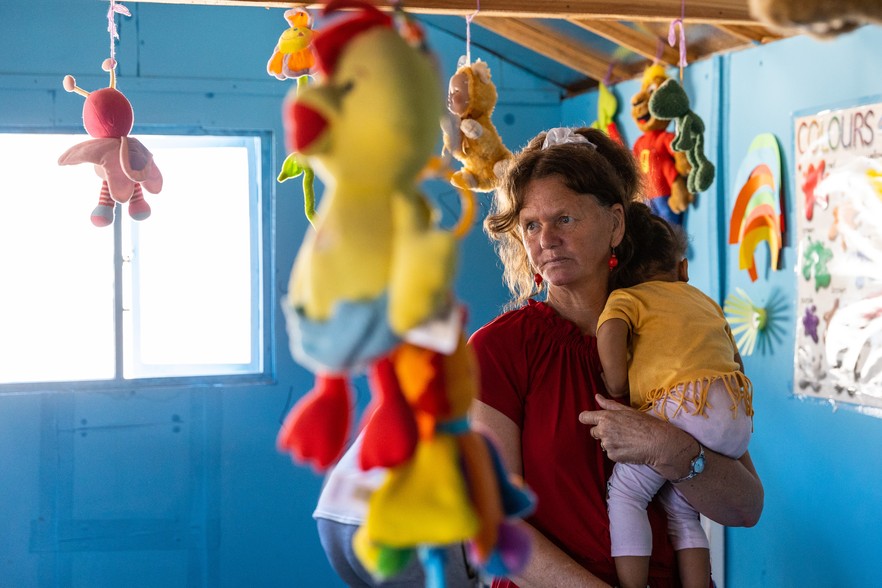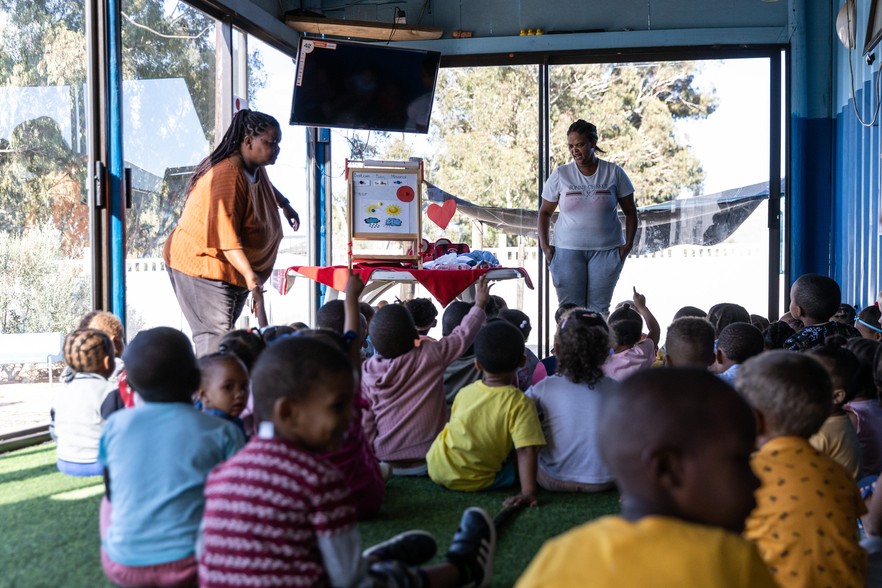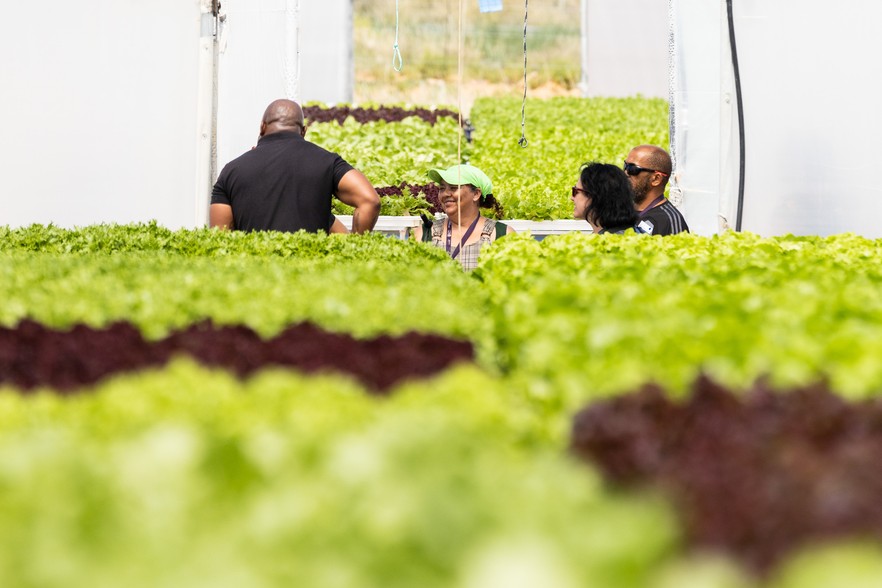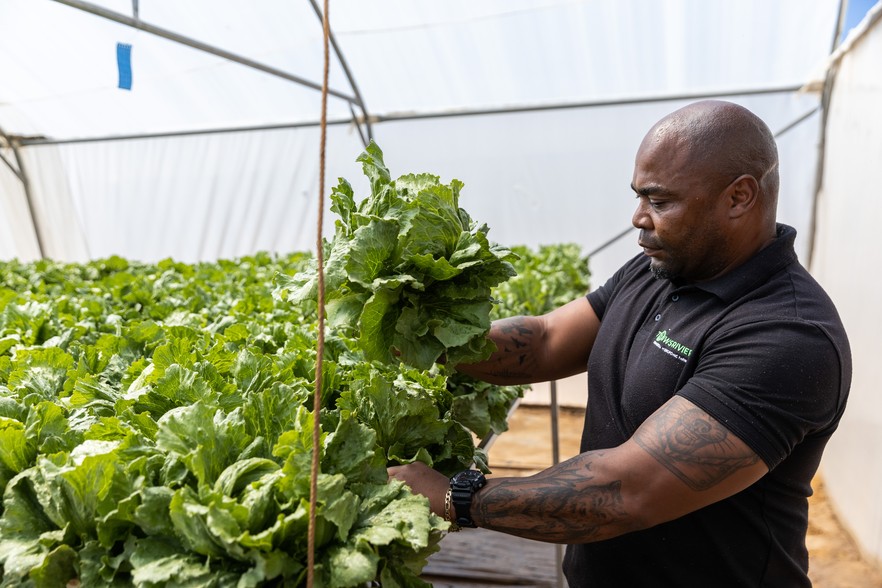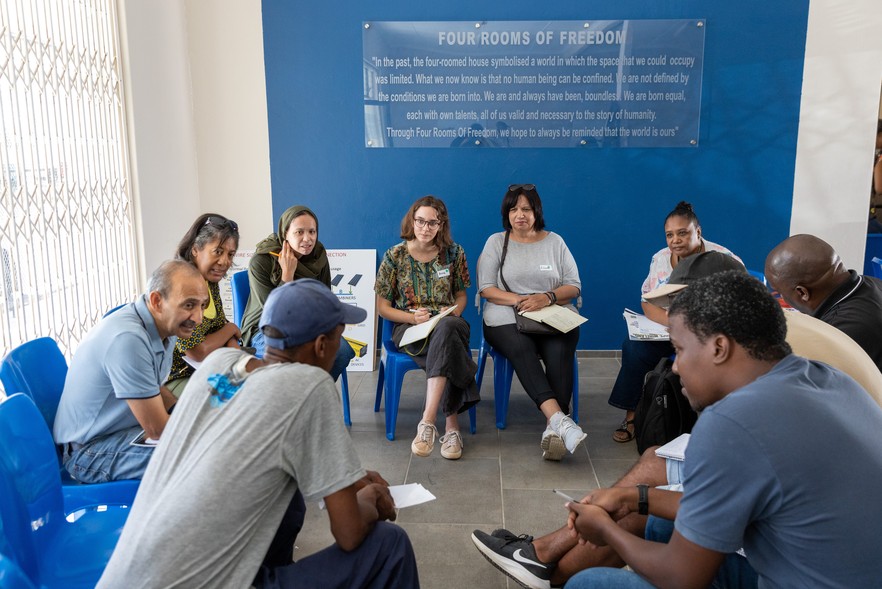In photos: Hunger and hope in Touwsrivier
Touwsrivier’s railway station, once bustling with travellers seeking a meal or a place to stay on their way to the Karoo or the coast, played a vital role in the town’s thriving economy. But this changed with the shift to road freight in the 1990s. All photos: Ashraf Hendricks
Touwsrivier, a town on the border of the Boland and the Karoo, has been suffering from economic decline, mirroring the fate of many small South African towns. Unemployment is about 80%, many businesses have closed, and many people are hungry.
The majority of the town’s residents rely solely on social grants to survive. Some find seasonal work on local farms, but employment prospects are limited during the winter and autumn months, when planting and harvesting opportunities are scarce.
The sign says: “Covid-19 plus hunger equals death. We are hungry. Breede Valley Municipality, make a plan”. Many of the town’s residents struggle to afford food and are classified as ‘food insecure.’ Some buy small quantities of food on credit.
Many residents rely on food provided by community kitchens, churches, or non-governmental organisations. Compassionate Hearts is a community kitchen that serves up to a thousand residents daily.
Despite navigating time-consuming processes and regulations for government assistance, the Compassionate Hearts team prioritises the immediate need to provide food, even if they can only distribute a simple meal of bread and peanut butter.
Johanna Solomon, founder of the Emmanuel Early Childhood Development Centre in Touwsrivier, has witnessed the detrimental impact of hunger on the children in her care. Inadequate nutrition impairs their concentration, resulting in academic setbacks.
The team at Emmanuel Early Childhood Development Centre ensure that the children in their care eat two meals daily. Staff often discreetly put extra packets of pap or rice in the backpacks of children whose families are food insecure.
Economic development and job creation are crucial for addressing food insecurity and malnutrition in Touwsrivier. But climate change in this arid region means that innovative approaches to creating employment are needed. The Touwsrivier Commercial Hydroponics Farm is an example of such an effort.
Rudie Moses oversees a team of ten employees and manages on the farm. They maintain six hydroponic tunnels and grow approximately 4,000 heads of lettuce per week. These are then sold to various restaurants and markets in the area.
A recent ‘Learning Journey’ in Touwsrivier brought together policymakers, government representatives, academics and local people to examine the town’s strained food system and explore solutions for a more secure and sustainable food system. Subsequently, the Western Cape Department of Agriculture visited the area and agreed to support more community food gardens.
Support independent journalism
Donate using Payfast

Don't miss out on the latest news
We respect your privacy, and promise we won't spam you.
Next: “Tough blow” for sex workers as decrim bill delayed
Previous: Over 180 judgments outstanding for longer than six months
© 2023 GroundUp. This article is licensed under a Creative Commons Attribution-NoDerivatives 4.0 International License.
You may republish this article, so long as you credit the authors and GroundUp, and do not change the text. Please include a link back to the original article.
We put an invisible pixel in the article so that we can count traffic to republishers. All analytics tools are solely on our servers. We do not give our logs to any third party. Logs are deleted after two weeks. We do not use any IP address identifying information except to count regional traffic. We are solely interested in counting hits, not tracking users. If you republish, please do not delete the invisible pixel.

